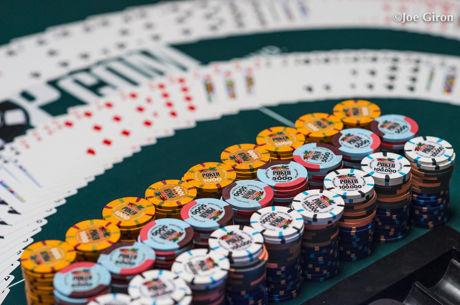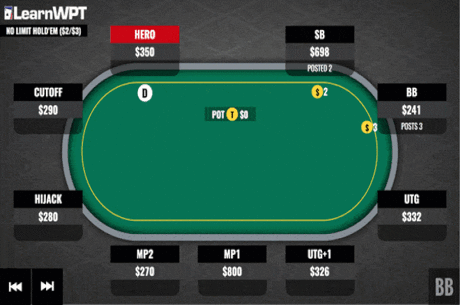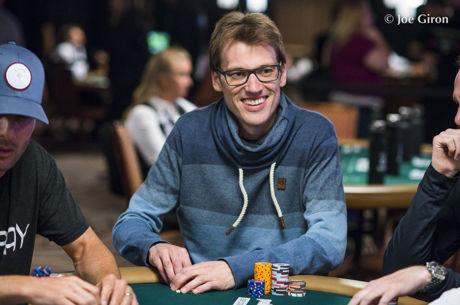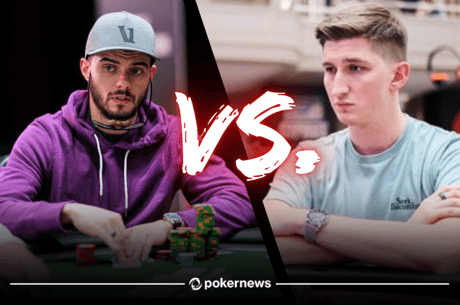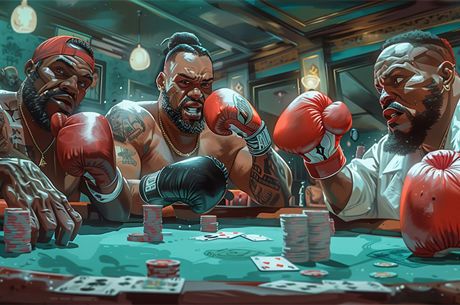Risk vs. Reward; or, Go Ahead, Let Them Draw Out On You
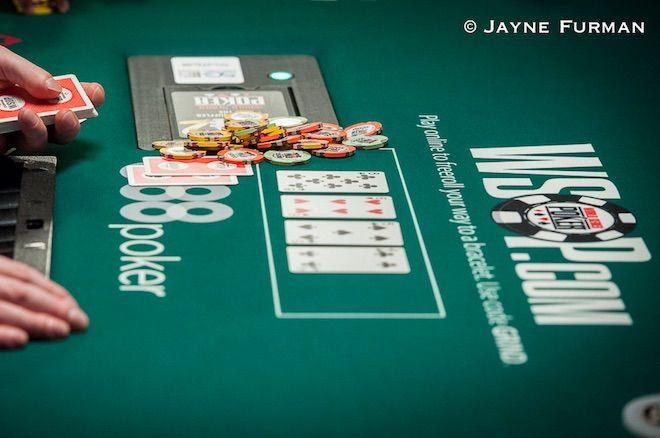
Sometimes the most profitable overall course of action is to make a choice that will cause you to lose a hand more often. It may sound ridiculous, but it's true. Let me explain.
Let's say you could raise a turn card and win a hand 95 percent of the time. But if you don't raise you enter a really profitable river situation, where you only win the actual pot 75 percent of the time. However, when you win, you win big, and when you lose, you don't put in extra money.
Three times out of four you'll scoop a deliciously bloated pot. Then a quarter of the time you'll have to talk yourself out of becoming crestfallen.
You could have avoided all of this misery on the turn if you had just raised, you might tell yourself, backseat driving. But the best players boldly go to the places where they can make even more. And if it should go awry, they get over it.
I think I was in such a spot recently in a $1,000 buy-in no-limit hold'em tournament. Let's get to the hand.
Flopping the World
We were playing 400-800-100, nine handed, and a relatively tight player opened to 2,200 from early position. A loose, recreational player called next to act.
In the big blind, I looked down and saw I'd been dealt the potent J♦9♦. I don't think we can fold here, even if the early position player is opening a tight range, which he was. As if to prove that argument, I called and flopped a flush — K♦Q♦4♦.
A Choice to Raise
I checked and the initial raiser declined to continuation bet. The in-position player took the cue to bet, but only 1,500 (into 7,500). This was a very small bet and I didn't think he had much of anything. (Of course, every once in a while he could have flopped us dead with A♦X♦, and bet not wanting to lose any customers.)
In any case, I thought the initial raiser might not be ready to give up, but would definitely fold if I raised. So I just called and sure enough, he came along to the turn.
The turn brought the 4♥ and a repeat of the story I just told you. After I checked and the early-position player also checked, the recreational player used his position to bet 5,000 into 12,000.
If I were to raise here, it was going to be a shove (we started about 30,000 effective). That way I can represent the widest range and get called by the usual suspects like A♦Xx, KxQx and baby flushes.
But notice, there aren't actually that many hands that give me action here. Is he really going to call off with a KxJx hand, no diamond?
On the other hand, if he's semi-bluffing with Jx10x, he's drawing dead. If he has A♦Jx or A♦10x, he has six outs (the 10♦ makes me a straight flush).
Extracting From Weakness
Because the board is dangerous, we would expect vulnerable hands to raise. So I don't expect either of my opponents to have much KxQx. When we sense so much weakness out there, we can't put too much pressure on our opponents. We are drawing dead to the strongest hands on this board, and we have the weakest crushed.
Because that's true, it seems obvious we would want to keep those weakest hands in the pot. But because we have a flush, many players would advocate raising at this point.
I think that's a mistake because we also have clarity on nearly every river card. Let's say a third 4x came, so any king or queen beats us. We don't have to pay off. Let's say a diamond comes that isn't the 10♦ — we don't have to pay off.
So even though by calling in this situation we will lose the pot more often than if we shoved, we can get more money out of hands that can't get money out of us. We can lead an A♦ river, check-raise a 10♦ one, check-call a blank, or go for the hero check-raise.
Theory in Practice
The river came the 7♦. I checked, the preflop raiser, who had check-called twice, now led out 4,000 into two players and a pot of 22,000. The recreational player behind him folded angrily and I let it go peacefully.

